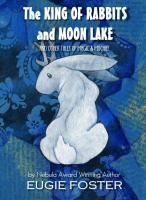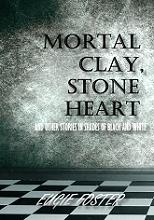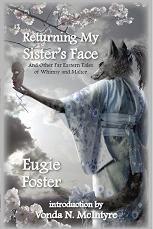At this point, I figure the company I interviewed with doesn’t want me. Pook. I’ll send them a query tomorrow to verify, but as I haven’t heard from them in the prescribed time, I think it’s safe to assume they were underwhelmed by me. Damn. On the positive side, it means I’m still footloose and fancy free, living the life of leisure. At least until my unemployment runs out . . . and my COBRA coverage. Gleep.

Writing Stuff
Okay. On the quest of researching some non-Asian folk tale/myths to tempt my muse, I trooped upstairs to the library and broke out the source material: Edith Hamilton and Thomas Bulfinch for the Greek (and Roman) myths, and E.A. Wallis Budge for the Egyptian.
I really love Greek myths–I’m a purist, I much prefer the Greek ones to the Roman. But every re-telling/re-imagining concept I come up with is for an adult audience, not a younger one. I’ve done a couple Greek stories in the past, and they’re dark. Very, very dark. Not saying that kids can’t handle dark, after all, I read Oedipus Rex when I was twelve, but still . . .
So I closed the Bulfinch’s and started in on the Budge’s. The Egyptian myths just aren’t gelling. They don’t suck me in the way a story needs to in order for it to tempt me to recreate it, to give it my own voice and spin. It could be Budge’s tone, which is very true to the translation and extremely dry. On one side of the text are the actual hieroglyphics, and on the other is the literal English translation. Not the best storytelling format, although can’t fault his rigid adherence to academic accuracy.
So I went back to the Asian myths. Yup. Within moments, I found myself snagged by the concept of the Kitchen God and his story. That sent me off on another research branch, and my imagination started fizzing.
I’m also starting to itch to get back to the novel. Hope that bodes good things for this week.









If you can find it (which you should be able to at least online), try the Tale of Sinuhe. It’s not a myth, but it could be retold as a great adventure story in the right hands!
Ooo, I Googled “The Tale of Sinuhe” and came up with some excellent sources. Thanks for the suggestion!
Hey Eugie. When you apply for jobs and they ask what you do in your free time, do you tell them about writing?
It depends. If it seems like something that would be beneficial to mention in the interview, I do. If it doesn’t, I just gloss over it. I do include my editorial experience on my resume because there’s a lot of supervisory and multi-tasking skills at work there, but again, how much I emphasize it varies depending upon the position.
Hmmm. Since you’re technically working on your novel and short stories, wouldn’t it be government subsidized self-employment instead of unemployment?
Guh? What is this “government subsidized self-employment” of which you speak? I’m not familiar with such an animal.
Or, err, was that tongue-in-cheek and my humor radar in on the fritz?
Actually, it was a poor attempt at humor. Your radar is okay. I never could tell a joke.
Hee! And there I was, getting all excited by the prospect of being able to apply for an artistic grant or some-such. Obviously, I have been corresponding too much with Australian and Canadian writers whose government actually supports little artist types. Sigh. No such beastie in the good ole US of A, of course.
It’s so interesting to read which mythologies attract which writers. I love Greek as well, but I haven’t done much with it. My first novel contains quite a bit of Native American myth, and my WIP is chock-full of Old Norse. I have both Cherokee and Danish ancestry. There must be some kind of Jungian pull that compells us and makes certain mythologies feel right. Anne Fitten Glenn
Folk tale/mythology collective unconscious! I love it.
Cross genres! Re-tell an Asian myth in a Greek setting!
Hee! I have–but a Western myth in an Asian setting. In the next issue of Paradox (#7), I’ve got a story appearing, “The Tiger Fortune Princess,” which is a Chinese re-telling of Snow White.
I tried to read Budge’s retelling of the Egyptian myths and even having had previous, well-loved exposure to the myths from other sources, I was bored silly. Sawing an arm off with cinnamon dental floss was preferable.
I wish I had some sources to point you towards, but I read these so long ago I hardly remember. I find the Egyptian myths just as interesting as the Greek ones. It’s a fascinating look at a culture who used chaotic gods and goddesses to explain the chaos in their own land.
I’m glad I’m not the only one who finds Budge dry and inaccessible. Blah.
I’ve read juicier translations of Egyptian myths, but I still don’t have a solid enough handle on their pantheon and the “tone” of their mythology to be able to do anything with them. But the mood and aesthetics are so alluring and fascinating! I keep wanting to do something Egyptian, delve into research, get overwhelmed, and then subsequently side tracked. Humph. I just need to hole up in a library for a few weeks, I bet. I did that all the time when I was a little girl, but now, alas, not so much.
Have you ever read D’Aulaire’s Book of Greek Myths? It’s a big, illustrated book, and was my introduction to the myths when I was a child.
Oh, that brings back memories! Yes, I read it when I was little. Such a marvelous, colorful pictures!
They also had a book of Norse myths which I loved as well, and read over and over. I was the only kid I know who grew up with those stories…
And I just checked. The Norse myths book is coming back into print, with an introduction by Michael Chabon.